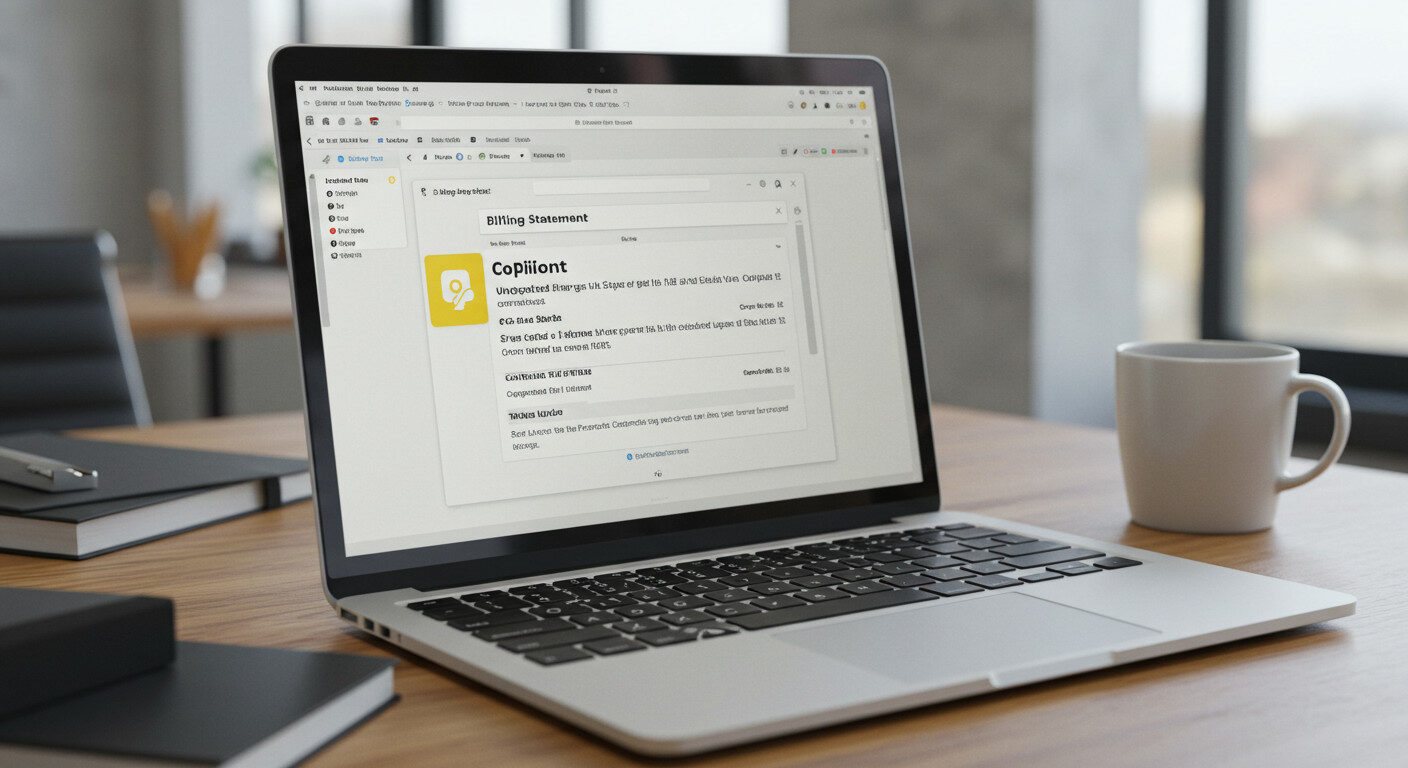Step-by-Step Guide to Managing Costs
Although GitHub Copilot is an effective tool for accelerating development, many customers experience surprise costs on their invoices, which leaves them perplexed and irritated. It’s critical to comprehend the sources of these use expenses and how to effectively manage them, regardless of whether you work as a team or as an individual developer. We break it down with practical, doable actions below to assist you in achieving long-term cost minimization and billing transparency.

Why Do Unexpected Charges Happen in Copilot?
GitHub Copilot may seem like a plug-and-play tool, but there are hidden layers behind those monthly invoices. Common reasons for billing surprises include:
- Multiple active subscriptions: You may have individual and team plans running simultaneously.
- Usage-based fees: Copilot’s business and enterprise versions may include metered billing for advanced features.
- Third-party add-ons: Copilot is often integrated with other tools that carry separate charges.
- Inactive user seats: You may be paying for users who no longer need access.
These billing issues usually fall through the cracks until they show up on your invoice—and by then, it’s too late to dispute without a headache.
Step 1: Understand Your Copilot Plan & Pricing
Not all Copilot plans are priced the same, and knowing which one you’re on is step one. Go to your GitHub Billing & Plans section and review your current subscription.
Ask yourself:
- Am I paying for a higher-tier plan I don’t fully use?
- Is my team still the same size as when I subscribed?
- Have any features been added that increased the cost?
By aligning your usage with the right plan, you’ll often find a cleaner invoice—and sometimes, a chance to downgrade for big savings.
Step 2: Track How Your Team Is Actually Using Copilot
Not only are your expenses determined by the plan, but they also depend on how frequently you use Copilot. This covers the number of developers actively using it and the projects with which it is integrated.
To get insight:
- Look into your codebase activity logs.
- Review Copilot’s interaction frequency.
- Identify spikes in usage—these often align with feature sprints or onboarding new devs.
Understanding usage patterns is a key part of controlling future charges.
Step 3: Audit Connected Tools and Add-ons
Did you recently enable GitHub Copilot Chat? Or perhaps connect it to a tool like Codespaces, which has its own billing structure?
That’s where a lot of unexpected costs creep in.
Check for:
- Paid integrations added without a full understanding of their pricing.
- Duplicated services (e.g., chat features you’re not actively using).
- Usage-based third-party plugins billed through GitHub.
Audit everything linked to Copilot. The goal is to isolate any service silently tacking onto your invoice.
Step 4: Review Past Invoices and Billing Trends
Jump into your GitHub Invoice History and start comparing the last three to six months.
Look for:
- Sudden spikes without a corresponding increase in team size or projects.
- Line items for services or features you didn’t knowingly activate.
- Any billing changes that weren’t communicated clearly via email or platform alerts.
This gives you the transparency you need to understand exactly what you’re paying for—and it arms you with evidence if you need to dispute anything.
Step 5: Clean Up and Optimize Your Setup
Once you’ve identified the problem areas, it’s time to clean house.
Here’s how:
- Remove inactive users from team accounts.
- Downgrade plans or switch to annual billing if you’re staying long-term.
- Consolidate multiple GitHub accounts if you’re managing subscriptions across teams.
The end goal is simple: only pay for what you’re actively using. This alone can lead to significant cost optimization.
Step 6: Automate Cost Monitoring & Billing Alerts
Waiting until the invoice arrives is a bad move. Set up proactive systems to keep an eye on spending.
To stay ahead:
- Enable billing notification emails from GitHub.
- Use calendar reminders to review invoices monthly.
- Assign billing oversight to a team member who can track usage and flag issues early.
The earlier you catch something unusual, the easier it is to fix—and the more you save in the long run.
Final Thoughts: Billing Transparency Saves Money

Consistency and knowledge are essential for preventing unforeseen Copilot charges. You may take charge by knowing your plan, monitoring usage, auditing related services, and frequently checking invoices. Making sure you’re using your tools effectively and get true value is more important than simply avoiding unexpected expenditures.
Why TechNow is Your suitable IT Support Partner in Germany
Are you still feeling overpowered by integration problems, cost optimization, or complicated billing? This is where TechNow is useful.
TechNow, the top IT support company in Germany, specializes in managing cloud services, subscription cleanup, and GitHub Copilot usage audits. Our professionals provide clarity and structure to your tech stack, whether you’re managing enterprise-grade deployments or a lean development team. 🛡️ Transparent billing.
Simplified subscriptions. 📊 complete IT support management.
So that you can concentrate on constructing, let TechNow take care of the difficult parts.



